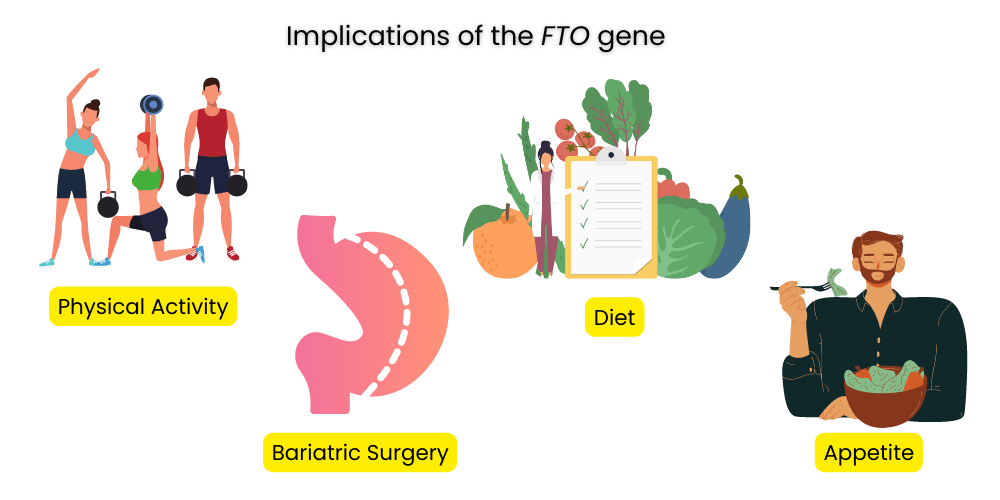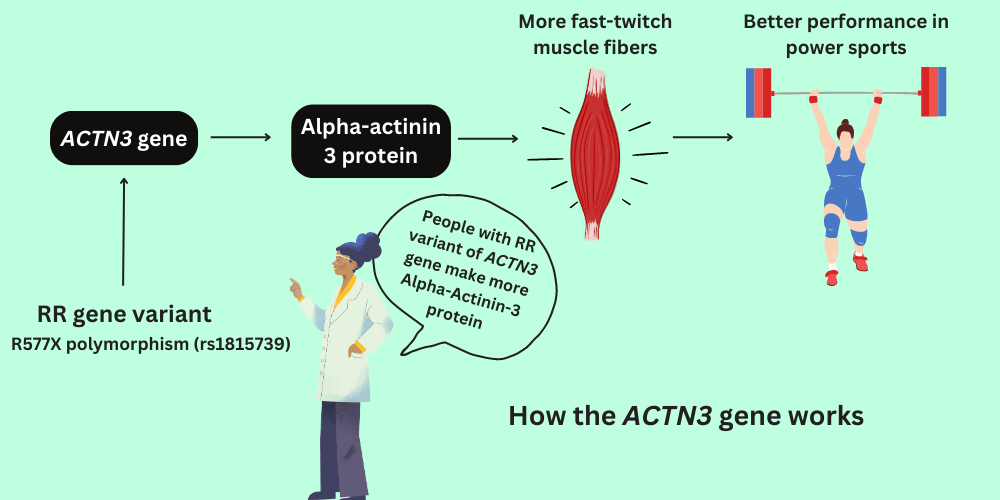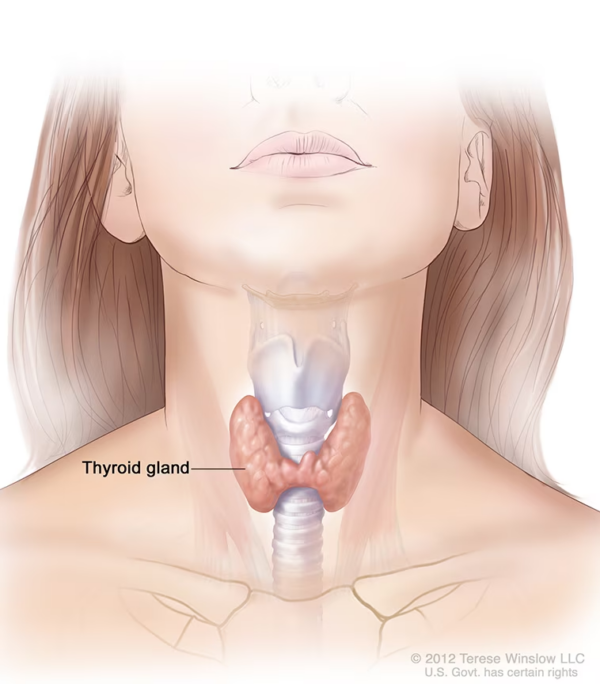Is Hypothyroidism Genetic? A Comprehensive Guide

Table of Contents
What is Hypothyroidism?
Hypothyroidism, often referred to as an underactive thyroid, is a common endocrine disorder where the thyroid gland does not produce enough thyroid hormone. According to the American Thyroid Association, about 4.6% of the U.S. population aged 12 and older has hypothyroidism.
What Causes Hypothyroidism?
The most common cause of hypothyroidism in the United States is Hashimoto’s thyroiditis, an autoimmune disorder where the immune system mistakenly attacks and damages the thyroid gland. Other causes can include radiation therapy, certain medications, and thyroid surgery.
Hashimoto’s Thyroiditis
Hashimoto’s thyroiditis is the most common cause of hypothyroidism, especially in the United States. This condition is an autoimmune disorder, which means the body’s immune system mistakenly attacks the thyroid gland. As the thyroid gland becomes inflamed and damaged, its ability to produce thyroid hormones decreases. Over time, the inflammation can cause the thyroid to become underactive, leading to hypothyroidism.
Radiation Treatment
Individuals who undergo radiation treatments for cancers of the head and neck, such as lymphoma, may experience reduced thyroid function as a side effect. The radiation, while targeting cancer cells, can also damage the thyroid gland, reducing its ability to produce hormones.
Thyroid Surgery
Some medical conditions may require partial or complete removal of the thyroid gland, a procedure known as a thyroidectomy. When the gland is partially removed, it might still be able to produce enough hormones. However, if it’s entirely removed, hypothyroidism is inevitable, and hormone replacement therapy becomes essential.
Medications
Certain medications can lead to hypothyroidism. Notably, lithium, used for treating psychiatric disorders, can affect the thyroid’s ability to produce hormones. It’s essential for patients on such medications to have their thyroid function monitored regularly.
Congenital Hypothyroidism
Some infants are born with an underdeveloped or nonfunctional thyroid gland, resulting in congenital hypothyroidism. If not treated promptly, this condition can lead to physical and mental development issues. Routine neonatal screening helps detect this condition early in most developed countries.
Iodine Imbalance
The thyroid gland uses iodine to produce thyroid hormones. An imbalance, either too much or too little iodine, can affect hormone production. In areas where iodine is deficient in the diet, goiters (an enlarged thyroid) and hypothyroidism can become prevalent. Conversely, excessive iodine intake, often from medications or iodine-rich diets, can also affect thyroid function.

Pituitary Gland or Hypothalamus Disorders
While less common, disorders of the pituitary gland or the hypothalamus can also cause hypothyroidism. These parts of the brain are responsible for regulating the thyroid gland. If they don’t produce enough of a particular stimulating hormone, the thyroid won’t produce an adequate amount of its hormones either.
Secondary Causes
Some rare conditions can lead to a decrease in the amount of thyroid hormone production, even if the thyroid gland itself is normal. These can include severe illnesses, traumas, or infections. In most cases, once the underlying issue is addressed, thyroid function returns to normal.
Section Summary
While the autoimmune response in Hashimoto’s thyroiditis is the most common cause of hypothyroidism, various other factors ranging from medical treatments to dietary imbalances can also play a role. Regular monitoring and understanding potential triggers are key to maintaining optimal thyroid health.
Can Hypothyroidism be Cured?
There is no cure for hypothyroidism, but it can be effectively managed with thyroid hormone replacement therapy. This medication restores the balance of thyroid hormones in the body.
Defining a Cure
To address the question of a “cure,” it’s essential to clarify what is meant by the term. Generally, a cure implies a permanent resolution of a disease, meaning the condition is entirely eliminated and won’t return. In the context of hypothyroidism, a cure would mean restoring the thyroid’s ability to produce adequate hormone levels independently without the need for ongoing treatment.
Hormone Replacement Therapy
The most common treatment for hypothyroidism is hormone replacement therapy, using levothyroxine. This medication provides the body with a synthetic form of the thyroid hormone thyroxine (T4), helping to normalize hormone levels and alleviate symptoms. While effective, this therapy isn’t a cure; patients typically need to remain on the medication for life.
Treating Underlying Causes
In some cases, addressing the root cause of hypothyroidism can lead to a resolution of the condition. For example, if a medication is causing hypothyroidism, stopping or changing that medicine might restore normal thyroid function. Similarly, if iodine deficiency is the culprit, supplementation or dietary changes can reverse the condition. However, in cases like Hashimoto’s thyroiditis, where the thyroid is damaged, reversal is unlikely.
Natural Therapies and Lifestyle Changes
There’s a growing interest in natural treatments and lifestyle changes to support thyroid health. Some patients with hypothyroidism turn to dietary adjustments, supplements, stress reduction techniques, and other holistic approaches. While these methods can help support overall well-being and may improve some symptoms, they are not proven to “cure” hypothyroidism. It’s always essential to work with a healthcare provider when considering alternative treatments.
Surgical Interventions
In rare situations, surgery might be recommended to address specific thyroid problems, such as large goiters or nodules. While surgery can resolve these particular issues, it might not cure hypothyroidism. In fact, if the entire thyroid is removed, hormone replacement therapy becomes necessary.
Management Over Cure
While certain causes of hypothyroidism can be addressed and resolved, many patients will require ongoing treatment to manage the condition. The concept of a “cure” for hypothyroidism is complex and depends largely on its underlying cause. For most patients, the focus is on effective management and symptom relief rather than achieving a complete cure.
Is Hypothyroidism an Autoimmune Disease?
Yes, one of the most common forms of hypothyroidism is an autoimmune disease known as Hashimoto’s thyroiditis. In Hashimoto’s, the body’s immune system mistakenly attacks the thyroid gland, impairing its ability to produce adequate thyroid hormones. Over time, this autoimmune attack can reduce the thyroid’s function, leading to an underactive thyroid or hypothyroidism. While not all cases of hypothyroidism are due to autoimmune responses, Hashimoto’s remains a leading cause in many parts of the world.
What are the Symptoms of Hypothyroidism?
Hypothyroidism, characterized by an underactive thyroid gland, manifests with a range of symptoms due to reduced thyroid hormone production. Common symptoms include fatigue, cold intolerance, constipation, dry skin, and unexplained weight gain. Additionally, individuals may experience muscle weakness, elevated blood cholesterol levels, joint pain, thinning hair, slower heart rate, and impaired memory. The severity of these symptoms varies among individuals and may be subtle in the early stages of the condition.
List of Symptoms
- Fatigue
- Cold intolerance
- Constipation
- Dry skin
- Weight gain
- Muscle weakness
- Elevated blood cholesterol
- Joint pain
- Thinning hair
- Slower heart rate
- Impaired memory.
Does Hypothyroidism Cause Weight Gain?
Yes, hypothyroidism often leads to weight gain. When the thyroid gland is underactive, it doesn’t produce sufficient thyroid hormones, which play a vital role in regulating the body’s metabolism. A slower metabolism means the body burns fewer calories at rest and during activity, leading to weight gain. This weight gain is primarily due to the accumulation of salt and water, and not fat. Additionally, individuals with hypothyroidism may experience fatigue and reduced activity levels, which can further contribute to weight gain.
Can Hypothyroidism Cause Anxiety?
Yes, hypothyroidism can be linked to anxiety. While typically associated with symptoms like fatigue and weight gain, an underactive thyroid can also affect the mood. Some individuals with hypothyroidism may experience symptoms of anxiety, depression, or other mood disturbances. The precise mechanism remains unclear, but the interplay between reduced thyroid hormone levels and neurotransmitter activity in the brain may contribute to these mood-related symptoms. It’s essential for individuals who have both anxiety and hypothyroidism to work closely with their healthcare providers to manage and alleviate symptoms effectively.
Is Hypothyroidism Genetic?
While the direct cause might not always be genetic, there are genes that can predispose an individual to thyroid disorders. Family history can be a risk factor.
Is Congenital Hypothyroidism Genetic?
Yes, congenital hypothyroidism, which is present at birth, can be due to genetic defects in hormone production.
How to Lose Weight with Hypothyroidism Based on Your Genes?
Personalized nutrition and fitness plans based on genetic markers can offer targeted strategies for weight management for those with hypothyroidism. Consulting with a genetic counselor can provide insights into individual genetic predispositions.
Genetic Insights into Metabolism
Every individual’s metabolism is unique, and genes play a pivotal role in determining this. For instance, variations in the FTO gene have been associated with obesity and might influence how one gains or loses weight. Understanding the nuances of such genes can help tailor a diet specifically beneficial for hypothyroid patients.

Dietary Adjustments Based on Genotype
Specific genes can affect how our bodies process different nutrients. For example, the APOA2 gene influences how we respond to saturated fats. Those with a certain variant might gain more weight when consuming a diet high in saturated fats. In contrast, the ADIPOQ gene variant can impact how an individual processes and stores dietary fats. By understanding these genetic predispositions, hypothyroid patients can adjust their diets more effectively.
Personalized Exercise Strategies
While exercise is universally beneficial, the type of exercise that might work best can be influenced by genes. A variation in the ACTN3 gene, often referred to as the “sprinter gene”, might indicate a person’s predisposition towards power or endurance-based activities. Those with hypothyroidism can use such insights to formulate an exercise regimen that aligns with their genetic strengths.

Medication Dosage and Genetic Interactions
Genes like CYP2D6 play a role in how our bodies metabolize drugs, including thyroid medications. Patients with certain variants might metabolize drugs faster or slower, affecting the drug’s efficacy. Personalizing medication dosage based on these genetic insights can ensure optimal thyroid levels, aiding in weight management.
Continuous Genetic Monitoring
Emerging research continues to unveil new genes and their roles in weight management and hypothyroidism. For instance, genes like TSHR have been linked to both thyroid function and obesity. Regular genetic testing can provide newer insights for hypothyroid patients, helping adapt their weight loss strategies over time.
Section Summary
Incorporating genetic insights into a weight management strategy can be transformative for hypothyroid patients. By understanding the intricacies of their genetic makeup, they can adopt approaches most conducive to their unique genetic profile.
What are the Five Most Prominent Genes Influencing Hypothyroidism?
Some of the key genes associated with hypothyroidism include:
TSHR (Thyroid Stimulating Hormone Receptor)
The TSHR gene provides instructions for making a protein found on the surface of cells in the thyroid gland. Mutations in this gene can disrupt the regulation of thyroid hormones, potentially leading to conditions like hypothyroidism. Abnormalities in the TSHR gene can hinder the thyroid gland’s responsiveness to signals, affecting its function.
FOXE1 (Forkhead Box E1)
The FOXE1 gene plays a critical role in thyroid development. Variations or mutations in this gene can result in thyroid dysgenesis, one of the most common causes of congenital hypothyroidism. The FOXE1 gene is crucial for the proper formation and positioning of the thyroid gland during fetal development.
PAX8 (Paired Box 8)
PAX8 is another gene essential for the proper formation of the thyroid gland. Mutations in the PAX8 gene can lead to thyroid dysgenesis. The PAX8 gene provides instructions for producing a protein that binds to specific areas of DNA, regulating the activity of other genes, especially during fetal development.
DUOX2 (Dual Oxidase 2)
The DUOX2 gene is involved in the production of thyroid hormones. Mutations in this gene can lead to a reduced ability of the thyroid gland to produce hormones, causing congenital hypothyroidism. This gene is critical for the synthesis of thyroid hormones, as it plays a role in the iodination of tyrosine residues in thyroglobulin.
TG (Thyroglobulin)
TG gene provides instructions for producing thyroglobulin, a precursor to the thyroid hormones T3 and T4. Mutations in the TG gene can hinder the body’s ability to produce these hormones, leading to hypothyroidism. This protein is essential for the storage of the thyroid hormones within the thyroid gland and their subsequent release into the bloodstream.
Understanding these genes and their roles can provide significant insights into the causes of hypothyroidism and aid in more effective and personalized treatments.
Is there a Genetic Test for Hypothyroidism?
While there isn’t a genetic test specifically for hypothyroidism, genetic testing can identify mutations associated with a predisposition to thyroid disorders.
Does 23andMe Test for Hypothyroidism?
23andMe does not directly test for hypothyroidism. However, they provide information on certain genetic variants associated with a predisposition to thyroid conditions.
Summary: Is Hypothyroidism Genetic?
- What is hypothyroidism?
- A condition where the thyroid does not produce enough hormones.
- Can hypothyroidism be cured?
- No, but it can be managed with medication.
- Is weight gain a symptom of hypothyroidism?
- Yes, due to slowed metabolism.
- Are there genetic markers for hypothyroidism?
- Yes, genes like TPO and TG are associated.
- Does 23andMe test for it?
- No, but they test for related genetic variants.
References
- American Thyroid Association. General Information/Press Room. 2020.
- Simmonds MJ. GWAS in autoimmune thyroid disease: redefining our understanding of pathogenesis. Nature Reviews Endocrinology, 2013.
- Genetics Home Reference. Congenital hypothyroidism. U.S. Library of Medicine, 2020.
- 23andMe Blog. Thyroid Conditions and Genetics. 2018.
Written By
Share this article













